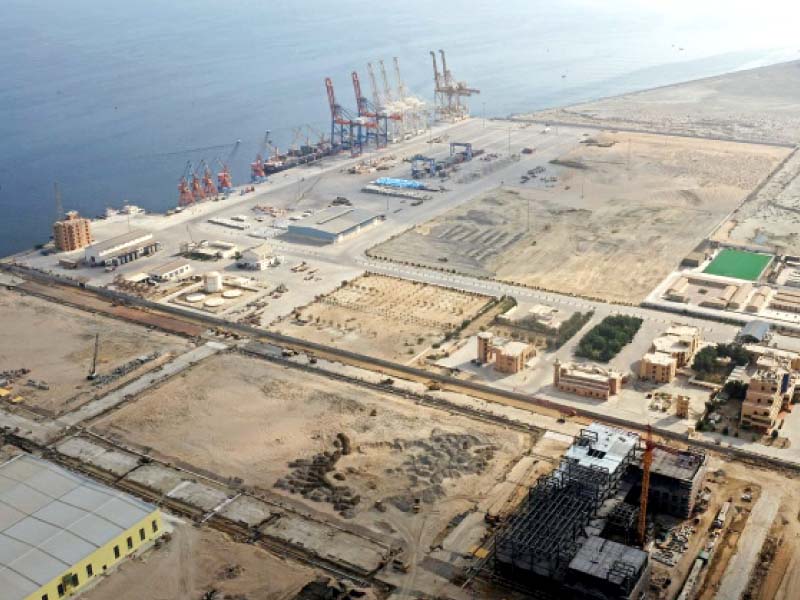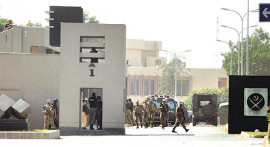
The Senate Special Committee on the China-Pakistan Economic Corridor (CPEC) has apprised the upper house of parliament that the planning, development and special initiatives ministry does not have the capacity to coordinate and manage projects like CPEC.
The committee states in a report that the ministry clearly lacks vision and critical thinking as an institution, adding that several lapses in the project due to mismanagement and lack of strategic planning were pointed out in the last two-and-a-half years.
“The ministry did not have the capacity to coordinate and manage a huge project like CPEC,” Committee Convener Senator Sherry Rehman stated in the report submitted before the house in the session held before the elections of chairman and deputy chairman Senate.
CPEC, an over $50 billion project, is a framework of regional connectivity, and aimed at enhancing geographical linkages by improving road, rail and air transportation system in Pakistan and in the region.
“From the outset, the committee observed that the ministry was facing issues which needed immediate response and that it clearly lacked a vision and critical thinking as an institution,” the convener stated in her message attached to the report.
Rehman has informed the house that the committee also viewed that “departments were shifting responsibility to one another and that they lacked institutional collaboration”.
After reviewing the performance and progress of the planning ministry and its various allied departments, the committee has reached the conclusion that they were “unable to formulate a clear strategy and harmonise their efforts with all stakeholders to communicate clearly to the public”.
Since CPEC is a major component of the Belt and Road Initiative (BRI) and it envisions unlocking the economic potential of Pakistan, the committee has suggested that provinces should be taken into confidence on building strong partnerships.
While giving “critical observations of the committee”, it is stated that numerous times, the committee expressed its serious concerns and reservations at the government for ignoring the demands of committee members to hold meetings and take notice of the lethargic attitude of planning ministry.
“The federal minister for planning, development and reforms was used to putting of the meetings by claiming to have been busy with projects of CPEC and his continuous visits abroad,” the report read.
In its meeting on April 17, 2019, the report stated, the committee took serious notice of the absence of the then planning minister Makhdoom Khusro Bakhtiar and directed the Senate Secretariat to issue a written notice to the federal minister.
The committee strongly criticised the minister for having left previous meetings without hearing the views of the members of the committee. The report also states that providing incomplete brief and working papers in the meetings was a routine.
The committee further observed that Special Economic Zone in Bostan, Balochistan, has received no PSDP funding and hence no progress could be achieved. “Planning Division’s unprofessional approach towards CPEC and its various umbrella projects with special reference to development of special economic zone in Balochistan and other parts of the country is disappointing.”
The report reveals that the briefings given by the planning ministry and its allied departments were “insufficient and lacked details on many aspects”. In addition, it added, that the “federal government is misrepresenting the facts on projects on Balochistan, including the SEZs, as well as the power project for Gwadar, which has been dragged in the Nepra tariff issue since 2017 and work has still not been started.”
The members of the committee stated that “no tangible progress has been achieved during last few years and despite recommendations, provision of gas and electricity supply in Boston area of Balochistan and its development as Special Economic Zone (SEZ) seems a farce.”
On several occasion, the report said, the committee showed its serious concern regarding the delay in CPEC projects and stressed the need for maintaining timelines if tangible progress is to be made. Among other things, the committee has pointed out that overlapping of responsibilities was the main reason for slow progress of projects.
1731329418-0/BeFunky-collage-(39)1731329418-0-405x300.webp)






1731737597-0/Untitled-design-(12)1731737597-0-270x192.webp)









COMMENTS
Comments are moderated and generally will be posted if they are on-topic and not abusive.
For more information, please see our Comments FAQ